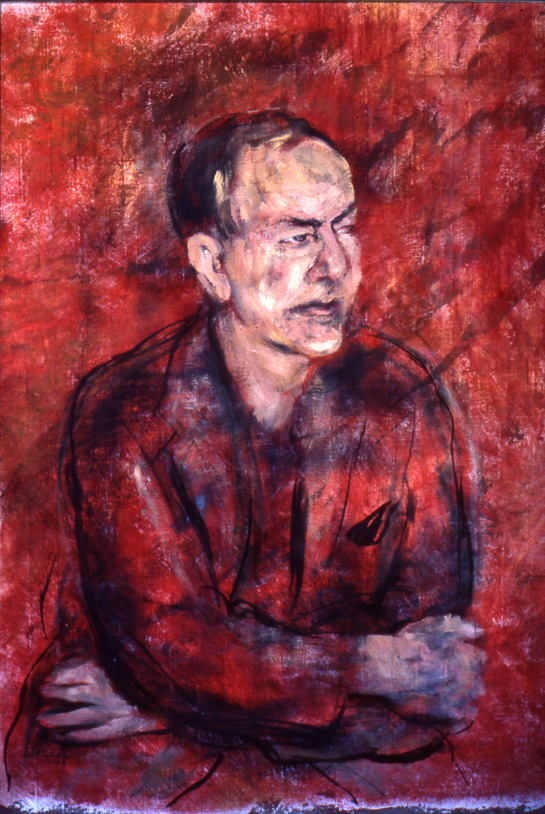Zdroj: 1940s-1950s, Administrative Behavior, 1947, p. 43.
Herbert A. Simon: Citáty anglicky
Zdroj: 1940s-1950s, Administrative Behavior, 1947, p. 274.
Zdroj: 1980s and later, Models of my life, 1991, p. 302.
Simon (1991) "Organizations and Markets:" in: Journal of Economic Perspectives. 5 (2 Spring 1991): p. 28.
1980s and later
H.A. Simon (1986), " Rationality in psychology and economics http://www.kgt.bme.hu/targyak/msc/ng/BMEGT30MN40/data/JoBus-86-rationality-HSimon.pdf," Journal of Business, p. 210-11”
1980s and later
“The behaviour of individuals is the tool with which the organisation achieves its targets.”
Zdroj: 1940s-1950s, Administrative Behavior, 1947, p. 108.
Zdroj: 1940s-1950s, Administrative Behavior, 1947, p. 114.
Zdroj: 1940s-1950s, Administrative Behavior, 1947, p. 100.
Zdroj: 1960s-1970s, "Rational decision making in business organizations", Nobel Memorial Lecture 1978, p. 502; As cited in Barros (2010, p. 464-5).
Simon (1945, p. 179); As cited in: Harry M. Johnson (1966) Sociology: A Systematic Introduction. p. 287.
1940s-1950s
Simon (1955) "A behavioral model of rational choice", The Quarterly Journal of Economics, Vol. 69 (1); As cited in: Gustavo Barros (2010, p. 462).
1940s-1950s
Zdroj: 1940s-1950s, Administrative Behavior, 1947, p. 79; As cited in: Terry Winograd, Fernando Flores (1986) Understanding Computers and Cognition: A New Foundation for Design. p. 21.
Zdroj: 1940s-1950s, Administrative Behavior, 1947, p. 62.
So remote were the operations researchers from the social science community that economists wishing to enter the territory had to establish their own colony, which they called “management science”.
1960s-1970s, "Rational decision making in business organizations", Nobel Memorial Lecture 1978
Zdroj: 1940s-1950s, Public administration, 1950, p. 7
Simon (1945, p. 353); As cited in: Philosophy of Technology and Engineering Sciences (2009) p. 425.
1940s-1950s
Zdroj: 1960s-1970s, "Rational decision making in business organizations", Nobel Memorial Lecture 1978, p. 498; As cited in: Arjang A. Assad, Saul I. Gass (2011) Profiles in Operations Research: Pioneers and Innovators. p. 260-1.
Zdroj: 1980s and later, "Why a diagram is (sometimes) worth ten thousand words," (1987), p. 71, as cited in: Bauer, Malcolm I., and Philip N. Johnson-Laird. " How diagrams can improve reasoning http://mentalmodels.princeton.edu/papers/1993diags%26reasoning.pdf." Psychological Science 4.6 (1993): 372-378.
Simon (1945, p. 240); As cited in:
1940s-1950s
Simon (1993. p. 2); Cited in Mario Catalani, Giuseppe F. Clerico (1996) Decision making structures. p. 1.
1980s and later
1960s-1970s, "Rational decision making in business organizations", Nobel Memorial Lecture 1978
Zdroj: 1940s-1950s, Administrative Behavior, 1947, p. 137.
Zdroj: 1940s-1950s, Administrative Behavior, 1947, p. 100.
Zdroj: 1940s-1950s, Administrative Behavior, 1947, p. xxix; As cited in: Jesper Simonsen (1994) Administrative Behavior: How Organizations can be Understood in Terms of Decision Processes http://jespersimonsen.dk/Downloads/Simon-introduction.pdf. Roskilde Universitet.
p.361
Zdroj: 1980s and later, Models of my life, 1991, p. 361; As cited in Ronald J. Baker (2010) Implementing Value Pricing: A Revolutionary Business Model for Professional Firms. p. 122.
Zdroj: 1980s and later, Models of my life, 1991, p. 166; As cited in Ronald J. Baker (2010, p. 122).
Zdroj: 1940s-1950s, Administrative Behavior, 1947, p. 252; As cited in: Herbert Simon (1996) The Sciences of the Artificial. page xii.
